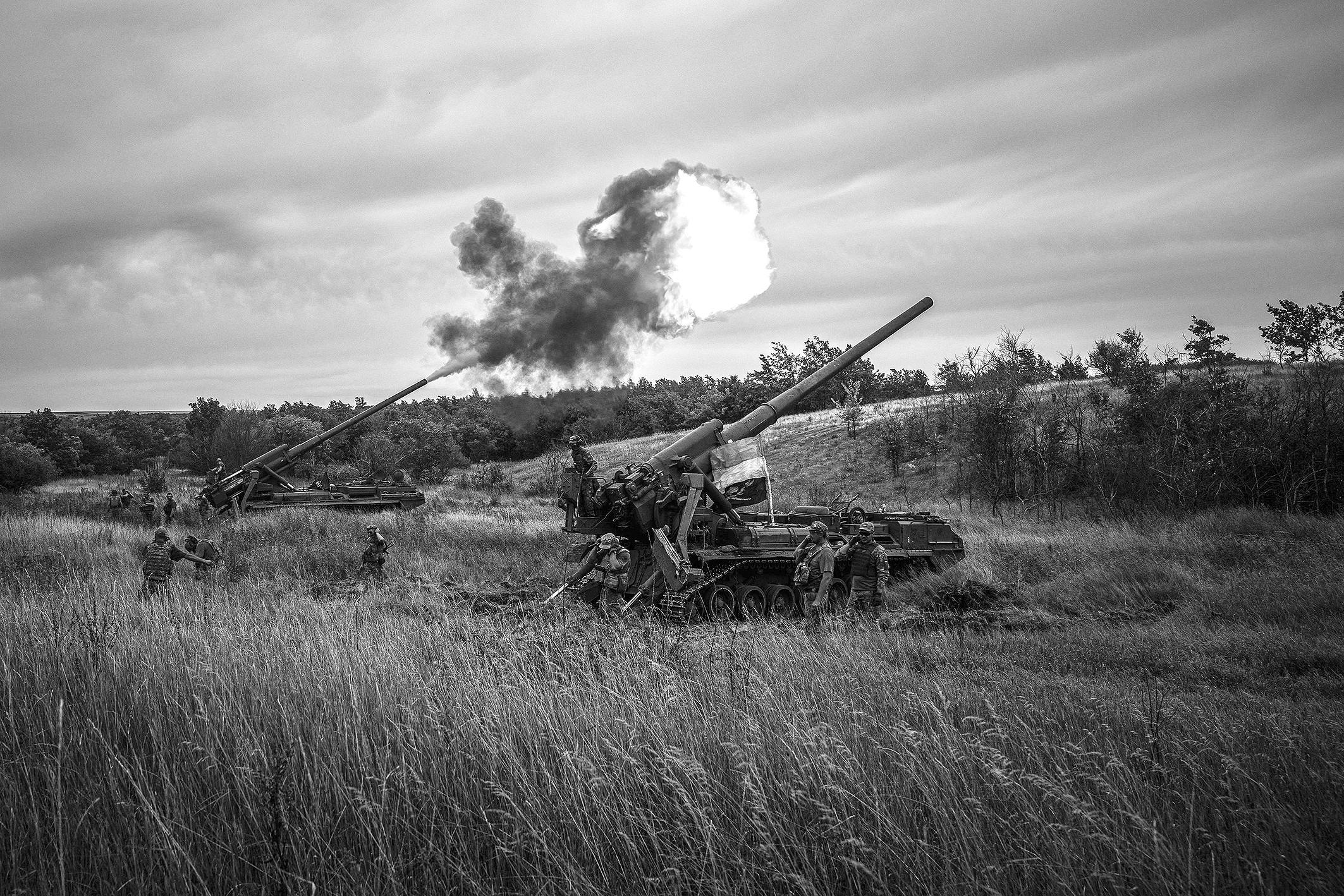Why is the war began to end easily
Author:Global Times Time:2022.09.01
The American "Foreign Policy" magazine August 29th article, original title: Why is the war began to be easy to end and it is difficult to put forward a idea: "Mobilization of war is much easier than ending the war." Each national leader or foreign policy adviser should have should Write this concept on paper and placed in the most conspicuous position in the office so that they will never forget.

On August 26, the Ukrainian artillery forces fired with artillery. (Visual China)
No Christmas that has not ushered in expected
Examples of this phenomenon are everywhere. For example, in August 1914, European countries walked towards the battlefield and claimed that soldiers would go home before Christmas. They did not realize that it would not be realized until 1918 that it was expected to go home in 1918. In 1980, Iraq's leader Saddam was also obsessed with the same fantasy. He believed that the 1979 revolution would make Iran's attack on Iraq. However, the war lasted for 8 years, and the two countries suffered hundreds of thousands of people's death and huge economic losses.
Even if it is a very successful military operation, it often does not win quickly, but falls into the endless quagmire. Although the 6-day war in 1967 lasted less than a week, it did not resolve the fundamental political issue between Israel and neighboring countries, but it was just a prelude to the war of war (1969-1970) and October 1973. The first success of the United States in Afghanistan and the Iraqi battlefield in 2001 was proven to be completely illusory.
Behind
Many national leaders have understood this painful lesson: provoking war is far easier than ending the war. Why is this? Just recognize the uncertainty of the war, there are often defects, or the consequences of the unexpected consequences of war. These are not enough. Considering the leaders of the war need to realize that the existence of strong trends makes the war a larger scale, higher cost, and longer duration than expected.
First of all, it is impossible to know how strong the opponent's resistance will be in advance, and leaders who consider attacking will probably underestimate the opponent's resistance. It is believed that your country is inherently better than all potential enemies, and will encourage the fighting to depreciate the opponent's resistance.
Secondly, once the war begins, the familiar issue of the cost of sinking will occur. Once the enemy suffers from losses, their leaders want to get enough benefits to prove that the sacrifice has made it reasonable. The desire to recover the cost of sinking also encourages the two sides to expand the goal of war because they try to obtain increasing increasing losses.
Furthermore, the war will continue because the war itself will strengthen the impression of the two sides. No matter how suspicion or hostility is at the beginning of the battle, as one party causes more death, destruction and pain to the other party, this hatred and suspicion will only increase.
In addition, as the enemy's image is strengthened, negotiation space decreases. Foreign relations may be interrupted, making direct communication more difficult. Anyone who dares to propose a compromise may be condemned as a traitor. Even if the negotiations really start, the peace solutions usually face serious commitments, and as the dislike of the two parties on the other party's image increases, this obstacle will become more and more obvious.
Fifth, the war also has a strong trend of upgrading and expanding. If one party loses, you may consider using more force, crack down on new or more dangerous goals, or improve bets in other ways. Another reason for the expansion of the war is that the external parties intervene in supporting one party. Unfortunately, the more countries that are involved in the conflict and the more favorable relationship with the conflict, the more difficult it is to let all countries agree to end the conflict.
The sixth reason for the continuation of the war is the deterioration of information quality. Although the country in a state of war should be calm and clear as possible, it is difficult to be more difficult. The government has a strong motivation to maintain the morale of the public. Through promotional news, concealing setbacks, and constantly reminding the evil nature of the people.
Cost and income
If the elites and the public of both parties in the war believe that the war is good for them, then there will be no great pressure to end the war. Of course, they cannot all be right, but it may take a long time to learn about the actual situation extensively. As British Prime Minister George said in 1917, "If people really know the situation of the front line, the war will stop tomorrow." There is also the last question: the war -to -seeker has almost no motivation before the achievements they can call victory. To end the war, compromise is equivalent to admitting that they messed up things.
Of course, all wars will eventually end, but when the cost far exceeds the income, there will be no comfort. The lesson is obvious: Although war is sometimes necessary, it should be carried out with the most reluctant attitude, and it should only be carried out under the most urgent needs. Those war decision makers must not forget that the powerful political and social forces released by participating in the war are difficult to predict and control. Once you start a war, it is unknown who will be killed. However, it is certain that this will take longer and more costs than you think. (Author Stephen Walter, translated by Chen Xin) ▲
- END -
"Give full play to political and legal" campaign "Power Guardiac Governance" end "

In a special period, please wear a mask to cooperate with the staff to do a good j...
Recently, 7 experts from Jilin University were selected as the "heavyweight" list!
With such a group of people, they protect their lives with their lives and warm their hearts with their hearts. They tirelessly enthusiastically in ordinary and sacred posts and dedicate selfless love